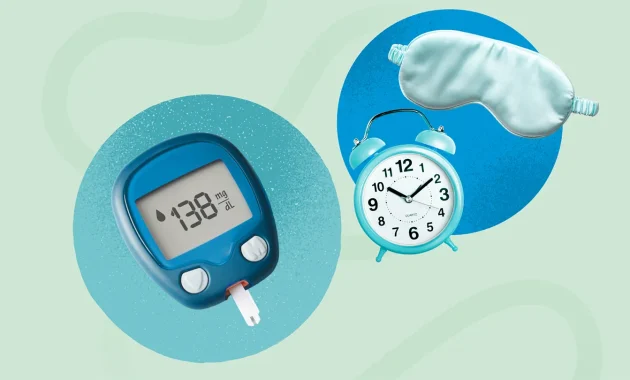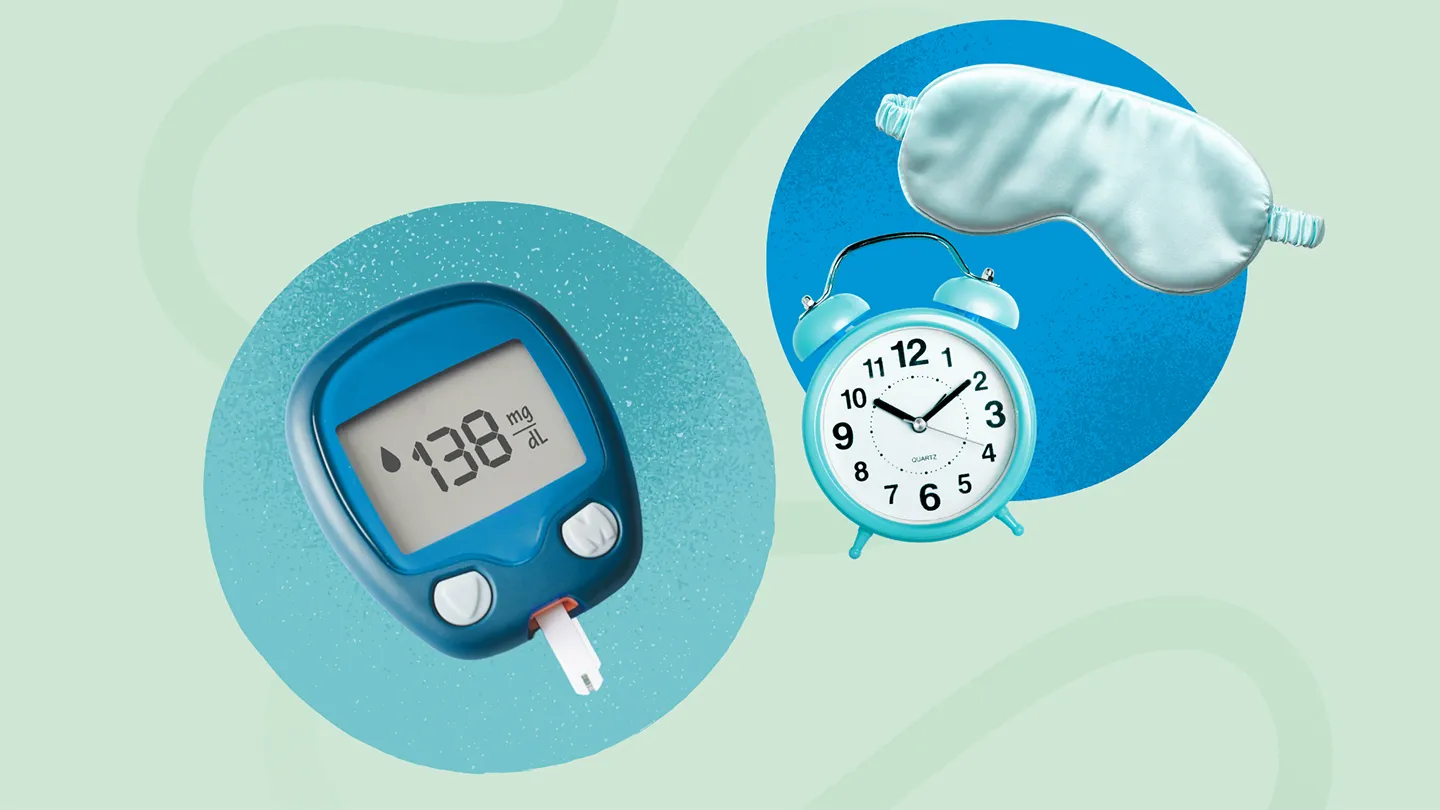
Diabet Sleep Hacks That Improve Glucose Levels: A Path to Better Sleep and Blood Sugar Control
The connection between sleep and diabetes is a complex one, but the evidence is clear: the quality and duration of your sleep significantly impact your blood sugar levels. For individuals living with diabetes, this is not just an inconvenience; it’s a critical factor in managing their condition and preventing long-term complications. This article delves into “Diabet Sleep Hacks That Improve Glucose Levels,” providing actionable strategies to optimize sleep and improve glucose control. We’ll explore the science behind this relationship, the risks of poor sleep, and, most importantly, the practical steps you can take tonight to start sleeping better and managing your blood sugar more effectively.
The Science of Sleep and Blood Sugar
Understanding the physiological link between sleep and blood sugar is fundamental. During sleep, the body undertakes crucial repair and regulatory processes. When sleep is disrupted, these processes are also compromised. In the context of diabetes, this disruption has a direct impact on insulin sensitivity and glucose metabolism.
Sleep deprivation, even for a single night, can lead to increased insulin resistance. Insulin, the hormone responsible for allowing glucose to enter cells for energy, becomes less effective. Consequently, glucose builds up in the bloodstream, leading to elevated blood sugar levels. Over time, chronic sleep loss exacerbates this issue, increasing the risk of developing type 2 diabetes and making it harder to manage existing diabetes.
Furthermore, poor sleep affects hormones that regulate appetite and metabolism. Lack of sleep increases the production of ghrelin (the hunger hormone) and decreases leptin (the satiety hormone). This can lead to increased food intake, particularly of unhealthy, high-carbohydrate foods, further contributing to blood sugar fluctuations. Sleep also influences the release of cortisol, the stress hormone, which can elevate blood sugar levels.
The Risks of Poor Sleep for Diabetics
The consequences of poor sleep are particularly serious for those with diabetes. Beyond the immediate effects on blood sugar control, chronic sleep disturbances can increase the risk of several diabetes-related complications:
- Cardiovascular Disease: Poor sleep is associated with increased blood pressure, inflammation, and other cardiovascular risk factors.
- Neuropathy: Nerve damage, a common complication of diabetes, can be worsened by sleep deprivation.
- Nephropathy: Kidney damage, another diabetes complication, can be accelerated by poor sleep.
- Retinopathy: Damage to the blood vessels in the retina, leading to vision loss, can be exacerbated.
- Increased Risk of Accidents: Sleepiness impairs cognitive function and reaction time, increasing the risk of accidents, especially while driving or operating machinery.
Recognizing these risks underscores the importance of prioritizing sleep as a crucial component of diabetes management.
Diabet Sleep Hacks: Practical Strategies for Better Sleep and Glucose Control
Fortunately, there are numerous “Diabet Sleep Hacks That Improve Glucose Levels” that can significantly improve sleep quality and, consequently, blood sugar management. These strategies encompass lifestyle changes, environmental adjustments, and, in some cases, medical interventions.
Establish a Consistent Sleep Schedule
One of the most fundamental “Diabet Sleep Hacks That Improve Glucose Levels” is establishing a regular sleep schedule. This means going to bed and waking up at the same time every day, even on weekends. This helps regulate the body’s natural sleep-wake cycle, the circadian rhythm, making it easier to fall asleep and wake up feeling refreshed.
Optimize Your Sleep Environment
Creating a sleep-friendly environment is another crucial step. This involves:
- Darkness: Ensure your bedroom is dark by using blackout curtains or an eye mask.
- Quiet: Minimize noise by using earplugs, a white noise machine, or a fan.
- Temperature: Keep the room cool, ideally between 60-67 degrees Fahrenheit (15-19 degrees Celsius).
- Comfort: Invest in a comfortable mattress, pillows, and bedding.
Dietary Adjustments
What you eat and when you eat significantly impacts sleep and blood sugar. Consider these dietary “Diabet Sleep Hacks That Improve Glucose Levels”:
- Avoid Caffeine and Alcohol: Caffeine and alcohol can disrupt sleep, especially if consumed close to bedtime.
- Limit Sugary Foods and Refined Carbohydrates: These foods can cause blood sugar spikes, which can interfere with sleep.
- Eat a Balanced Dinner: Include a moderate amount of protein, complex carbohydrates, and healthy fats in your evening meal.
- Consider a Bedtime Snack: A small snack containing protein and carbohydrates, such as a handful of nuts and a piece of fruit, may help stabilize blood sugar levels overnight. However, consult with your healthcare provider before making changes to your diet.
Exercise Regularly
Regular physical activity promotes better sleep and improves insulin sensitivity. Aim for at least 150 minutes of moderate-intensity exercise or 75 minutes of vigorous-intensity exercise per week. However, avoid strenuous exercise close to bedtime, as it can sometimes interfere with sleep. Incorporate exercise into your routine earlier in the day. This is one of the fundamental “Diabet Sleep Hacks That Improve Glucose Levels.”
Manage Stress
Stress can significantly impact sleep and blood sugar levels. Practice stress-reducing techniques such as:
- Meditation: Regular meditation can help calm the mind and reduce stress.
- Deep Breathing Exercises: Deep breathing can help lower heart rate and promote relaxation.
- Yoga: Yoga combines physical postures, breathing techniques, and meditation to reduce stress.
- Mindfulness: Paying attention to the present moment without judgment.
Review Medications
Certain medications, including some diabetes medications, can affect sleep. Discuss your medications with your healthcare provider to determine if any are contributing to sleep problems. They may be able to adjust your dosage or recommend alternative medications.
Address Underlying Medical Conditions
Conditions like sleep apnea, restless legs syndrome, and chronic pain can disrupt sleep. If you suspect you have any of these conditions, seek medical attention. Treating these underlying issues can significantly improve sleep quality and blood sugar control. Consulting with a healthcare professional to address any underlying medical conditions is one of the most important “Diabet Sleep Hacks That Improve Glucose Levels.”
Utilize Technology Wisely
Technology can be a double-edged sword when it comes to sleep. While some apps and devices can help track sleep patterns and provide insights, excessive screen time before bed can interfere with sleep. Consider these tips:
- Limit Screen Time: Avoid using electronic devices, such as smartphones, tablets, and computers, for at least an hour before bed. The blue light emitted by these devices can suppress melatonin production, making it harder to fall asleep.
- Use Blue Light Filters: If you must use electronic devices before bed, use blue light filters or night mode settings.
- Consider Sleep Tracking Apps: Some apps can track your sleep patterns and provide valuable insights, but use them judiciously.
The Role of Healthcare Professionals
While these “Diabet Sleep Hacks That Improve Glucose Levels” can be highly effective, it’s essential to consult with healthcare professionals. A doctor, endocrinologist, or certified diabetes educator can help you develop a personalized plan that addresses your specific needs and circumstances. They can also assess for underlying medical conditions and adjust your diabetes management plan as needed.
Conclusion: Prioritizing Sleep for a Healthier Life
Managing diabetes is a multifaceted challenge, and sleep is a critical piece of the puzzle. By implementing these “Diabet Sleep Hacks That Improve Glucose Levels,” individuals with diabetes can significantly improve their sleep quality, blood sugar control, and overall health. Remember that consistency is key. It may take time to establish new habits, but the benefits – improved blood sugar, reduced risk of complications, and a better quality of life – are well worth the effort. Prioritizing sleep is not just about getting a good night’s rest; it’s about taking control of your health and living a longer, healthier life.
[See also: Related Article Titles]

